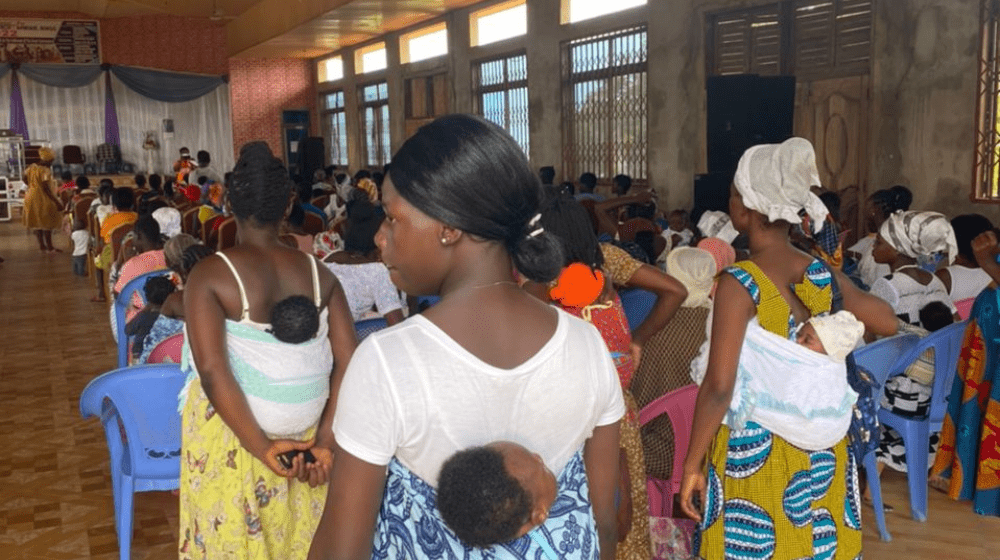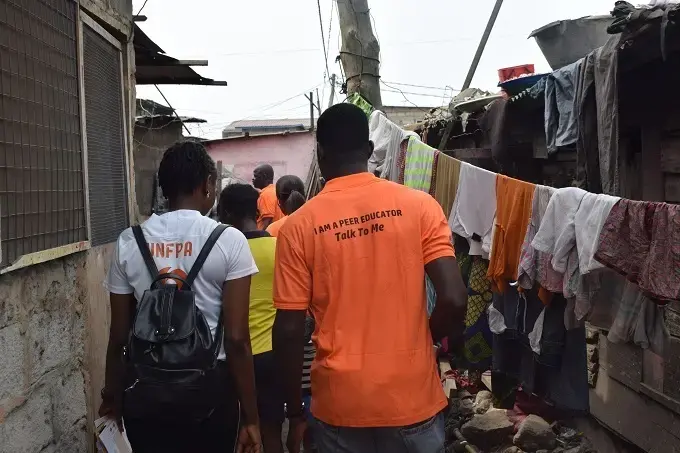Between 2016 and 2020, Ghana recorded 542,131 amongst adolescent girls aged 15-19 years and 13,444 pregnancies amongst young teenagers aged 10-14 years according to the Ghana Health Service District Health Information Management Health System (DHIMS). Not only are these numbers worrying, but also a critical concern that has life-time ramifications on the life, health, wealth and well-being of the adolescents, their children, families, communities, and the country at large.
Amongst many, these adolescents and young women are prone to several sexual and reproductive health consequences including sexually transmitted infections, repeated pregnancy(s), sexual and gender-based violence, abuse and exploitation, fistula, and other post-partum reproductive challenges. Other challenges such as anemia, nutrition, psychological and emotional troubles, break in education aspirations, drift into livelihood challenges aggravating generational poverty, discrimination and stigmatization as well as lose of family and social ties in some cases.
Meanwhile, these teenagers and adolescents are highly predisposed to HIV transmissions and to transfer of HIV to their unborn children or infants.
As part of our work, UNFPA, recognizing the risks of Mother-to-Child Transmission of HIV among pregnant and parenting teens and adolescents, is running a campaign targeted at pregnant and parenting teens and adolescents to raise awareness and address situations that could lead to MTCT among these young women. As part of this campaign, UNFPA recently held an engagement forum with these teenagers in Accra (Mamprobi) and Ningo-Prampram area.
The forum reached about 500 pregnant adolescents and teen mothers: 200 in Mamprobi in Accra and 300 at Prampram-Ningo in the Greater Accra Region. The forum was facilitated by PMTCT Programme nurses from Ghana Health Service and Field Officers from PPAG. The facilitators took turns to expose the participants to risks of HIV infection and transmission to their unborn children and infants and how these risks can be reduced or averted. The girls and young women were also empowered with information and guidance on how to access postpartum family planning and contraceptives to reduce their risk of repeated unwanted pregnancies.
To ensure that these girls and young women were supported to access HIV transmission prevention, the Ghana Health Service Focal points for PMTCT provided guidance and directions to treatment access facilities at the two sites and encourage the girls to become interested and take advantage of the opportunities they must manage their risk to infection and live healthy lives if they were already living with the virus.
Meanwhile, it was worrying to notice that in these communities, the situation of adolescent and young women's pregnancy and parenting phenomena seem to be getting out of hand. In an interaction with the Assembly Member at Ahwiam in the Prampram-Ningo District, he asserted that the situation of adolescent and young women pregnancy had reached an alarming proportion requiring urgent action to prevent it getting out of control. He indicated that many of the girls dropped out of school at primary level following pressure from family and friends that results in pregnancies. The Ghana Health Service Nurses who facilitated the session on Post-Partum Contraception and Family planning also expressed worry about the prevailing and entrench negative perspectives held amongst the community members about contraception and family planning-resulting in rejection of the service across the district.
More than ever, the need for reproductive and sexual health education is urgently needed, for all young people including those in-school, out-of-school, religious and in various communities and situations. For most of these adolescents and young women, the absence of consistent sexual and reproductive health education coupled with poverty, socio-cultural environments and conditions already predisposes them to several risks that challenge their right to education, access to livelihoods and well-being. As observed from the two events, especially in these communities, the phenomena are almost an acceptable norm given that almost every young woman is expected to have had at least a child by age 16/17 years. "I wanted to have a kid or be a mother, that's why I'm pregnant," a pregnant young mother from Mamprobi explained. Another 18-year-old girl with four children stated that she desired to be a grandma by the age of 28 because people are dying at a younger age. She added that people would see her grandchild and her name would be remembered, which is one of the reasons they desire to have children at a younger age.
If the situation is not improved, it will have adverse impacts on Ghana’s attainment of many SDGs as well as Government's medium term development programmes and worsen the already precarious maternal and infant morbidity and mortality situation we have in Ghana as well as increase MTCT of HIV. At Ahwiam, a nurse made it known that the attention of health professionals has been drawn to a common practice among girls in the communities where they resort to prayer camps, fetish priests and herbalists for massages when pregnant and some even go as far as staying with the herbalists until delivery at these confined places. It is therefore recommended that more attention be paid to adolescent girls in communities and schools to empower them with information and skills to make informed decisions, access sexual and reproductive health services and develop positive values for personal development, health and wellbeing and educational aspirations. Also, community engagement and sensitization campaigns should be reactivated in these communities to address communal values, social and cultural practices that give rise to these phenomena. Finally, the engagement of parents, men and boys should be intensified as they remain a major problem and the solution. Whilst many parents have reneged on their responsibilities, the adolescent girls have also become victims of sexual exploitation by men and boys in their communities who take advantage of the vulnerabilities of the girls, particularly in relation to the provision of basic needs such as food, school fees, menstrual hygiene kits, uniform etc.
UNFPA will continue to support government and its CSO partners in advancing the sexual and reproductive health and rights of young people and addressing the sexual and gender-based violence and exploitation of adolescents, young people, and women in Ghana.




